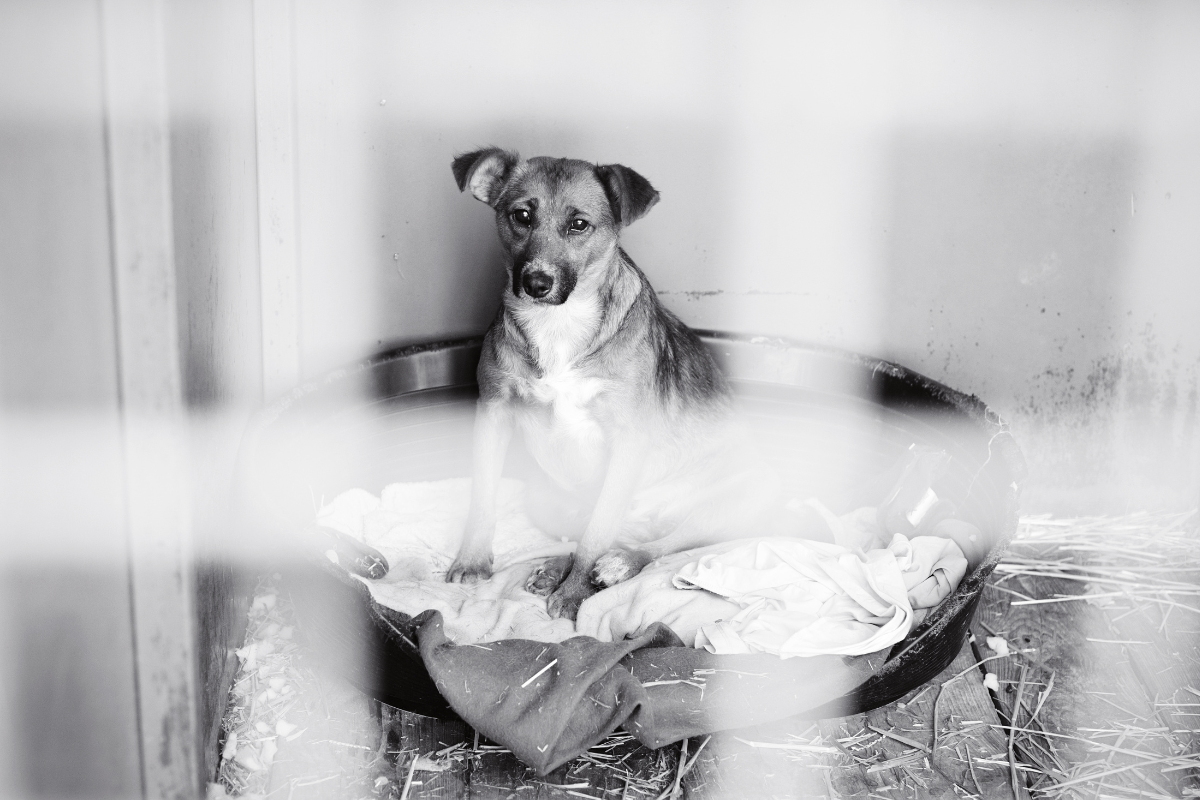It’s believed that dog breeders fall into these two categories – large-scale puppy mills and smaller-scale backyard breeders considered more ethical and responsible because they work with veterinarians to consider inherited veterinary issues and temperament before breeding a specific dog. They’re also rumored to hang on to unsold dogs or turn them over to a rescue group.
Unfortunately, a new type of dog breeder has entered the mix—the greedy at-home hobbyist, who, during the pandemic when interest in pets spiked, saw an opportunity to make some cash.
Some shelters struggling to convince people to stop supporting the at-home breeders who promote their puppy sales on social media platforms such as Nextdoor, say they receive at least one litter each week of unsold puppies.
Perhaps the at-home breeders adopted an unspayed dog from a shelter that was suffering from reduced spay/neuter access during the pandemic to cash in on selling a litter of popular purebred dogs—from $1,500 – $4,000 bulldogs to mixes like Labradoodles who cost $1,500 – $3,000 for a puppy.
These same people often decline to have their mother dog spayed if presented the opportunity. When intentionally bred puppies and mother dogs are deposited at animal shelters, that’s when the rubber hits the road.
Nearly 1 million more dogs and cats are overcrowding animal shelters across the country compared with three years ago. It’s a crisis that can only be averted with rigorous spay-neuter practices and policies. Last year, more than 359,000 dogs and 330,000 cats were euthanized through no fault of their own. This alarming shelter killing rate marks a five-year high.
In mid-March, two young male bulldogs were found abandoned on a city street in the Miami metro area. The two dogs, estimated to be a year and 18 months old, were sick and covered in rashes and bloody paws, but are receiving good care and treatment by rescuers. They’re even now wagging their tails.
It’s imagined they were used for breeding and afterward they were unceremoniously dumped alongside the street.
Words are not fit to print to describe our thoughts about all breeding operations. In truth, no one should breed dogs and cats who can produce two or in the case of cats, three litters in one year.
All breeders are doing it for profit, and the animals are paying the price. The nation’s animal shelters are overwhelmed and ending the lives of animals while breeders line their pockets. This is simply reprehensible.
To help ease the shelter crisis, no shelter should release a cat or dog that’s not already spayed or neutered or isn’t accompanied by a spay-neuter certificate that the person getting the dog must use.
Friends of Animals’ spay-neuter program has been operating for more than six decades, and we’ve issued close to 3 million spay-neuter certificates to make the surgeries more affordable. In some cases, we cover all the costs for rescue groups who use our certificates or make gifts to special breed groups to facilitate their needed surgeries.
FoA’s rate of $330 for female dogs is highly desirable—we’ve heard that New York pet-owners complain that it costs $1,000 in New York City to spay a dog. Our rate for a male dog is $210; male cat $132; female cat $180.
FoA has 51 veterinary practices to work with in New York. Our top five states for selling our spay-neuter certificates are New York, New Jersey, Florida, Massachusetts and Connecticut.
Three hundred-twenty-five veterinarians cooperate in our spay-neuter network, and we’re assisting with the spay-neuter surgeries of approximately 10,000 dogs and cats each year. Our toll-free hotline for a certificate is 1-800-321-PETS, or go to friendsofanimals.org
To keep dogs and cats off the streets and out of America’s municipal shelters, please spay and neuter. And any chance you get, educate family and friends about refusing to indulge the breeders.

